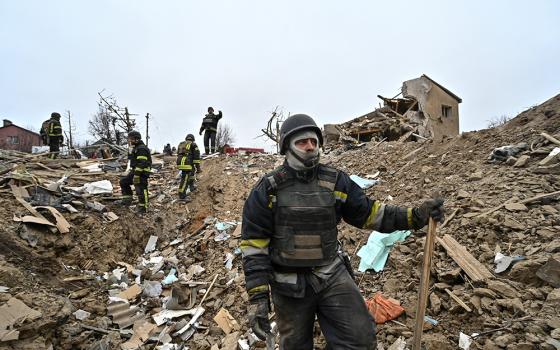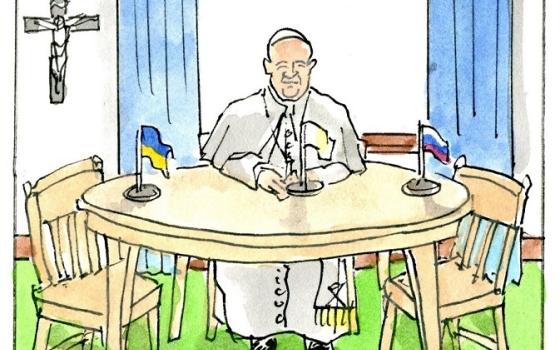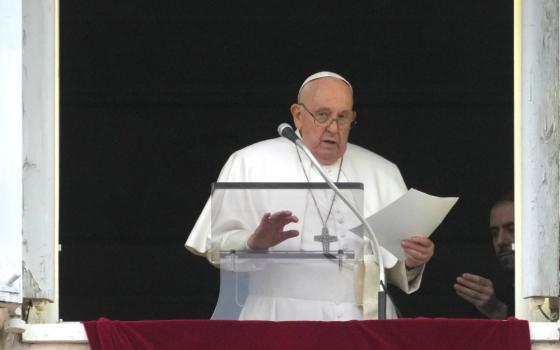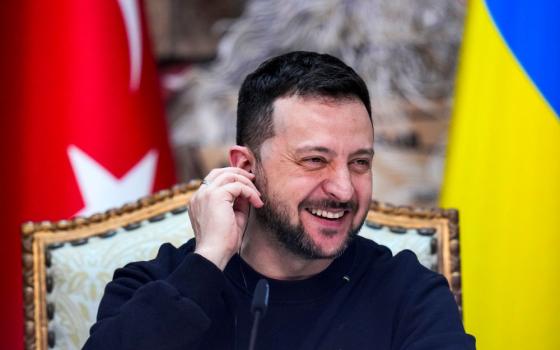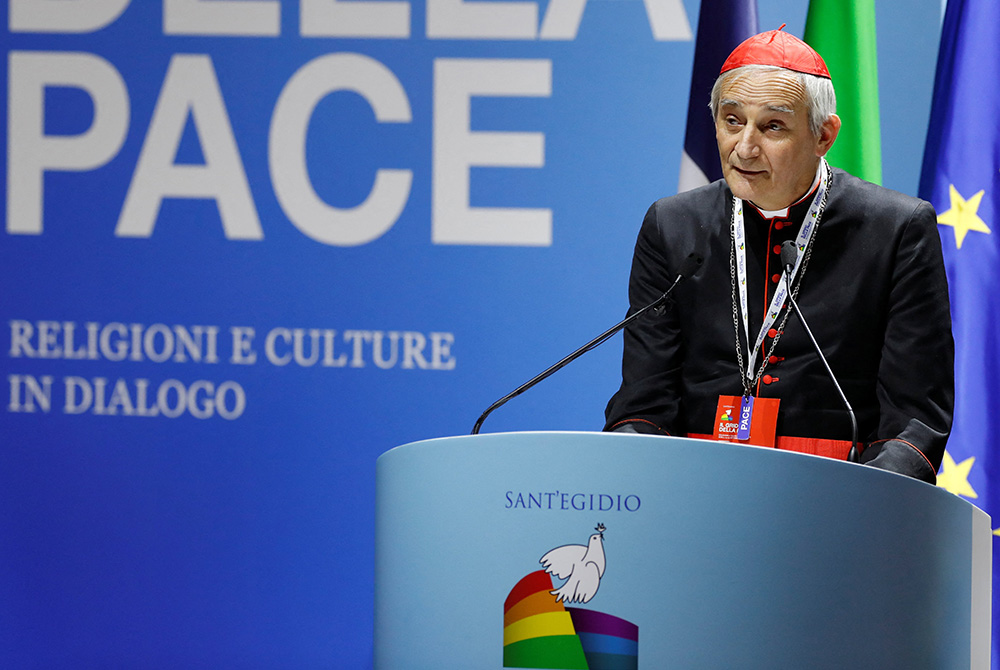
Cardinal Matteo Zuppi attends the opening of the interreligious meeting "The Cry of Peace" in Rome Oct. 23, 2022. The meeting was sponsored by the Community of Sant'Egidio. (CNS/Reuters/Remo Casilli)
When Cardinal Matteo Zuppi eventually heads to Kyiv, Ukraine, and, in particular, to Moscow as the pope's peace emissary, it may not be his connections to the Vatican that opens doors for him but rather his connection to the Community of Sant'Egidio, a lay-led Catholic social service organization that he has been involved in for nearly five decades.
En route back from Hungary last month, the pope told reporters that he was involved in a secret mission to end the 15-month conflict in Ukraine. But after Ukrainian President Volodymyr Zelenskyy met with Francis at the Vatican on May 13, Zelenskyy effectively dismissed the idea that the Vatican could serve as a peace broker, saying, "We do not need mediators."
Undeterred, the Vatican confirmed on May 20 that the pope had tapped Zuppi as his point man for his previously announced peace mission, adding that plans for it are still being studied and Francis still hoped that a process of dialogue could "initiate paths of peace."
The Vatican's channels with the Kremlin have been largely blocked since the start of the war, with Francis being unable to make direct contact with Russian President Vladimir Putin. The Holy See's relationship with the Russian Orthodox Church has also increasingly deteriorated in that time.
Just 20 days after the war began, the pope held a video call with Russian Orthodox Patriarch Kirill, who has repeatedly backed and blessed Russia's war efforts. Francis later revealed that during the call he warned the patriarch not to become "Putin's altar boy."
Since that time, senior Vatican officials have privately described the relationship between the Holy See and the Russian Orthodox Church as largely frozen.
Enter Zuppi.
As is widely known, Zuppi, 67, has long enjoyed close ties with Sant'Egidio, sometimes referred to as the "United Nations of Trastevere," a nod to the Roman neighborhood where it is headquartered.
The community, now active in more than 70 countries, was founded in 1968 in the wake of the Second Vatican Council and has been instrumental in a number of high-profile peacemaking efforts, most prominently in Mozambique, where it helped bring about an end to the country's 16-year civil war.
Advertisement
Throughout his 10-year papacy, Francis has expressed a particular fondness and closeness with the organization, relying heavily on them to carry out his ongoing peace efforts in South Sudan and for the establishment of humanitarian corridors for migrants fleeing war and violence.
Zuppi, who is currently the archbishop of Bologna and president of the Italian bishops' conference, has been intricately involved in the work of Sant'Egidio, including serving as one of the lead negotiators for the two-year peace process in Mozambique, as well as other conflict resolutions in Guatemala and Burundi. This background — combined with his overall pastoral focus on poverty and nonviolence — has burnished Zuppi's credentials as a potential successor to Francis long before being tasked with his current assignment.
If Zuppi is welcomed in Moscow, he will not only carry the pope's blessing, but perhaps more crucially, the support of Sant'Egidio, which boasts of decades of goodwill with the Russian Orthodox Church.
Over the years, Russian Orthodox Patriarch Kirill has been a participant in San't Egidio's annual International Peace Meeting in Italy. In 2010, Kirill conferred Sant'Egidio founder Andrea Riccardi with the Order of St. Sergius, one of the highest honors of the Orthodox Church, praising the organization's commitment to Catholic-Orthodox dialogue. In 2014, Riccardi met with Kirill in Moscow and received an honorary doctorate from the Theological School of the Orthodox Church, where the Sant'Egidio founder was celebrated for his commitment to peace.
And when, in 2016, Francis and Kirill met in Havana — marking the first-ever encounter between the Roman Catholic pope and the Russian Orthodox patriarch — the Community of Sant'Egidio was credited as being one of the major forces who paved the way for the historic meeting.
How a Roman Catholic cardinal will be received by two warring countries that are overwhelmingly Orthodox remains an open question, but Francis' selection of Zuppi, buttressed by the support of Sant'Egidio, might indicate that the pope's focus is not directly on the Russian president but on a different — albeit severely morally compromised — powerbroker, in that of Patriarch Kirill.
Following his visit to the Vatican, Zelenskyy didn't mince words: "You can't do mediation with Putin," he said. "No country in the world can do it."
Perhaps no country can reach Putin. But might it also be possible the pope is still holding out hope that the Russian Orthodox Church can?





